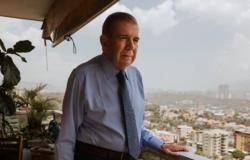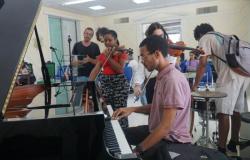The registry of collectors came to the session from the General Legislation, Powers, Petitions, Regulations and Human Resources commission. It is a project by councilor Sergio Marino, from Together for Life. A vote was taken on a table in consideration of their fate: the attention of an unprotected edge of public safety. The theft behind the black market in metals It’s impossible to cut it with just the chase In the field of action of thieves, the police are not enough.
Theft of copper cables Centenario.jpg
“Given the criminal growth regarding the theft of cables made of non-ferrous materials, we are looking for discourage the marketing of this type of products of dubious origin and in alternative markets,” the Council reported in a statement that outlined the guidelines discussed in Thursday’s session. It was the sixth of the year. No councilor was missing.
While the project was discussed in the council, details of the black market became known. For example: Centenario is the city with the most cable thefts within the distribution scheme run by EPEN. The rural area of the town is the most unsafe for the facilities of the provincial entity in the province. Until last year, the theft of cables in that area left about 20 million pesos in the chacaritas.
Other topics in the Neuquén Deliberative Council
In addition to the registration of metal collectors, the Council approved on tables a repudiation of the closure of the Télam News Agency by the National government and the dismissal of more than 700 workers, which it would imply. The initiative was promoted by the FIT-PTS block.
Likewise, the councilors approved on tables the permit for free use and occupation of the property of the United Provinces Society by which it will be able to maintain ownership of the sports center space and the soccer field for another ten years.
The session reached its climax when it entered the voting process of the commission offices on a request for a public hearing to discuss the CALF extra fee to pay his debt with Cammesa. The body ratified by majority the idea that was imposed in the Public Services Commission, with seven signatures for the majority opinion against two for the minority opinion.
The Council reported that the majority decision was based on three central aspects: “The public hearing requested lacks the prior founding character of the Institute. Furthermore, it states that the request was made for an object that cannot be carried out; namely, the repeal of an Ordinance. And that because it concerns an Ordinance – municipal law -, it exceeds the framework established by Article 157 of the Organic Charter, which has specifically been reserved for administrative acts, expressly excluding to legislative acts”.
The approved resolution also states that “the Ordinances can in no case be considered political-administrative actions, but are legal norms emanating from legislative acts, in the exercise of the legislative functions that are constitutionally the responsibility of the Municipal Legislative Body.”
Furthermore, in another point he highlights that the public hearing is an input of information that arises from citizen participation itself; so that decision-making takes into account the conclusions resulting from the hearing itself. Highlighting at this point, the ex – ante sense “that avoids turning it into a mere staging and a formal procedure, not producing a certain effect if carried out a posteriori.”






